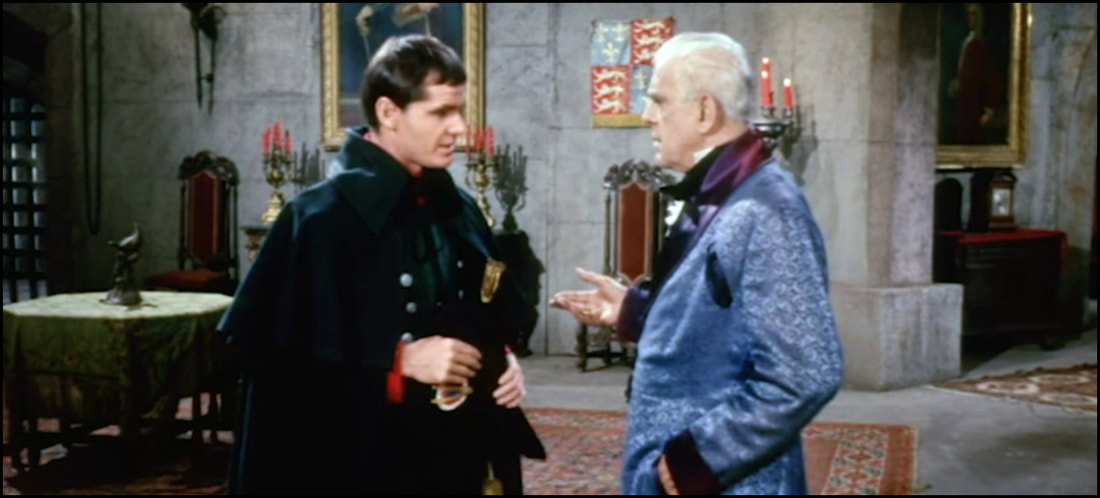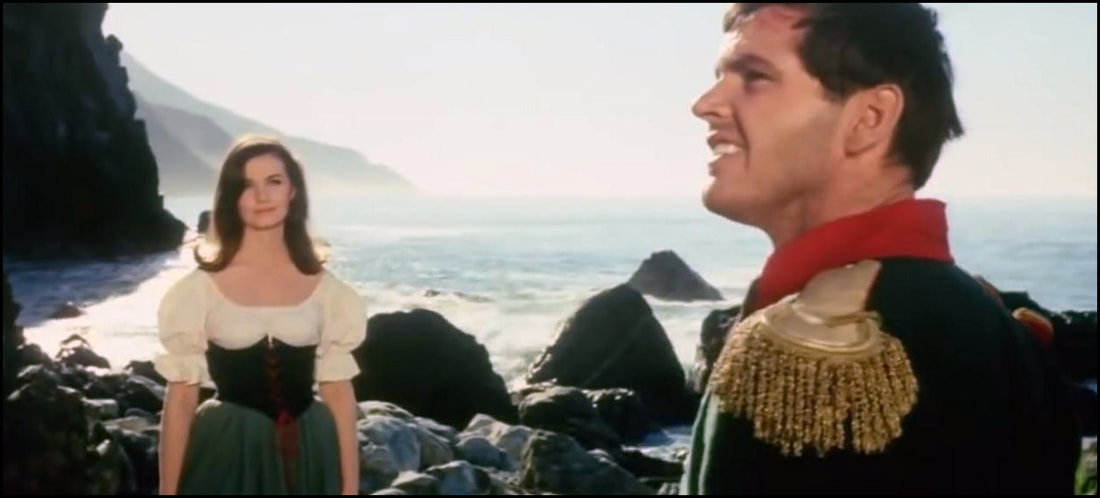I know, I know, I know: right out the gate, I’m sounding awfully judgy, right? Well, that happens from time to time, and it does so today mostly because I find myself often crippled with lethargy when confronted by ghost stories that are delivered in far too Gothic a fashion. Gothic Horror has been largely categorized as stories that rely heavily upon mood and atmosphere – they tend to be mostly bleak in nature – and there’s generally some major tie in involving a strong measure of supernatural and/or dark magic required to make all of it into something possible. While some flicks are truly more content with just your run o’ the mill ghost, Gothic yarns try to go a bit further – perhaps trying to flesh out a wider spiritual world – and, frankly, it usually bores me silly. I can’t tell you the number of arguments I’ve surrendered about what makes these films good or bad; in the end, I typically throw out the white flag with a request to ‘agree to disagree,’ never really wanting to win the day. In fact, I’d rather just have the day back so I can relive it without the film, but that’s another debate entirely.
That said, Roger Corman’s The Terror (1963) is almost exactly what I’m talking about. It both is and isn’t a ghost story instead relying on some magical trickery facilitated by an old lady who may or may not be a witch all set in a reality that may or may not be as close or as far from anything resembling reality. Oh, there’s a castle, some vicious bird, and a few mysterious players who try to spice up the affair; but the big finish doesn’t quite make perfect sense. That’s certainly saying something when your star has achieved the heights of one Jack Nicholson paired up opposite the legendary Boris Karloff. Their involvement alone suggested to me that this one might just be worth the effort … and yet I’m left with the overwhelming sense of inadequacy with how it all turned out.
(NOTE: The following review will contain minor spoilers necessary solely for the discussion of plot and/or characters. If you’re the type of reader who prefers a review entirely spoiler-free, then I’d encourage you to skip down to the last few paragraphs for the final assessment. If, however, you’re accepting of a few modest hints at ‘things to come,’ then read on …)
From the film’s IMDB.com page citation:
“A French Army officer, Lieutenant Duvalier, has been separated from his unit and receives help from a mysterious woman. He follows her to the castle of Baron Von Leppe only to find that she is the Baron’s wife who died 20 years ago.”
A chief concern of mine with any ghost story is that once I know I’m in the middle of one I start to ‘study the seams’ more than I’m watching its players.
See, once the bloom is off the rose (as they say), then my brain kinda/sorta shifts into a different gear. If I’m successfully put together the pieces so that I’m understanding what the point of the action is, then I start to look for what is and isn’t real any longer. The fact that there’s some supernatural deception afoot practically requires one to watch a bit more closely – where the story is heading, what might be clever misdirection instead of authentic developments, and which of these people might turn out to be less than mortal – and this might find some losing patience fairly quickly. This doesn’t mean this particular adventure is any less entertaining; it merely posits that the trickery is well under way, and I – like many others – will spend time trying to unravel its puzzles before the big twist is delivered in the finale.
Like any good ghost story, all of this is blended together because of love – that one, sure thing – and the script (credited to Corman, Leo Gordon, and Jack Hill) uses an almost classical structure to pit the men against the women in pursuit of their respective carnal delights. Because The Terror showcases a small cast – there are no more than six players in total – it isn’t all that difficult to kinda/sorta guess who may’ve originally been attracted to whom, and such obviousness immediately lessens what could’ve otherwise been a more interesting cerebral exercise. Still, the problems mount quickly as allegiances shift, identities are re-aligned, and only exposition can be exploited to fill the gaps left by plot holes. Come the last reel, I was aghast at how little I really knew about our hero – Duvalier – and how little I really cared whether he won the day or not. There’s a narrative flatness here that just never gets overcome, and it winds up spoiling just about every twist.
Now, I have read that The Terror wasn’t so much one easily-shot production as it was a theatrical outing cobbled together across a handful of related shooting sequences. While the lion’s share of the footage apparently belongs to Corman himself, several scenes and second shooting strings were prepared by Francis Ford Coppola, Jack Hale, Monte Hellman, and even star Nicholson getting in on the storytelling action. The lack of one driving force at the helm could easily explain why this story seems to shift focus here and there – Nicholson’s and Karloff’s screen time puts them kinda/sorta at odds in more ways than one, and Miller’s scenes suggest differing levels of complicity with the spooky details – so it’s difficult to come away from The Terror knowing full well what I was supposed to be frightened of.
The Terror (1963) was produced by Roger Corman Productions. DVD distribution (for this particular release) is being coordinated by the fine folks at Film Masters. As for the technical specifications? While I’m no trained video expert, I thought that the sights and sounds to this newly restored release (from film elements) to be astonishingly good. There are a few sequences wherein its patently obvious that inferior masters were used, but none of this detracts from the visual and audible delights. As for the special features? The collection boasts a theatrical trailer, a visual essay, an audio commentary (hosted by C. Courtney Joyner and Dr. Steve Haberman, and a collector’s booklet with accompanying essays. It’s a great assortment for those who cherish these kinds of extras.
Alas … only mildly recommended.
The best I can summon about The Terror (1963) is that offers up some occasionally interesting scenery along with some reasonably proficient production detail though I’ve got very little idea of what its story really was. Gothic yarns have never been my forte, and this one’s languid pacing across an already slim 80-minutes had me rewinding in a few spots to see if I’d missed something. (Tip: I hadn’t, at least not that I could find.) It feels like it was meant to be meatier than it inevitably was, what with the heavy hints of intersecting relationships, but frankly I was glad it was all over once … well … it was all over.
In the interests of fairness, I’m pleased to disclose that the fine folks at Film Masters provided me with a complimentary Blu-ray of The Terror (1963) by request for the expressed purpose of completing this review. Their contribution to me in no way, shape, or form influenced my opinion of it.
-- EZ



 RSS Feed
RSS Feed